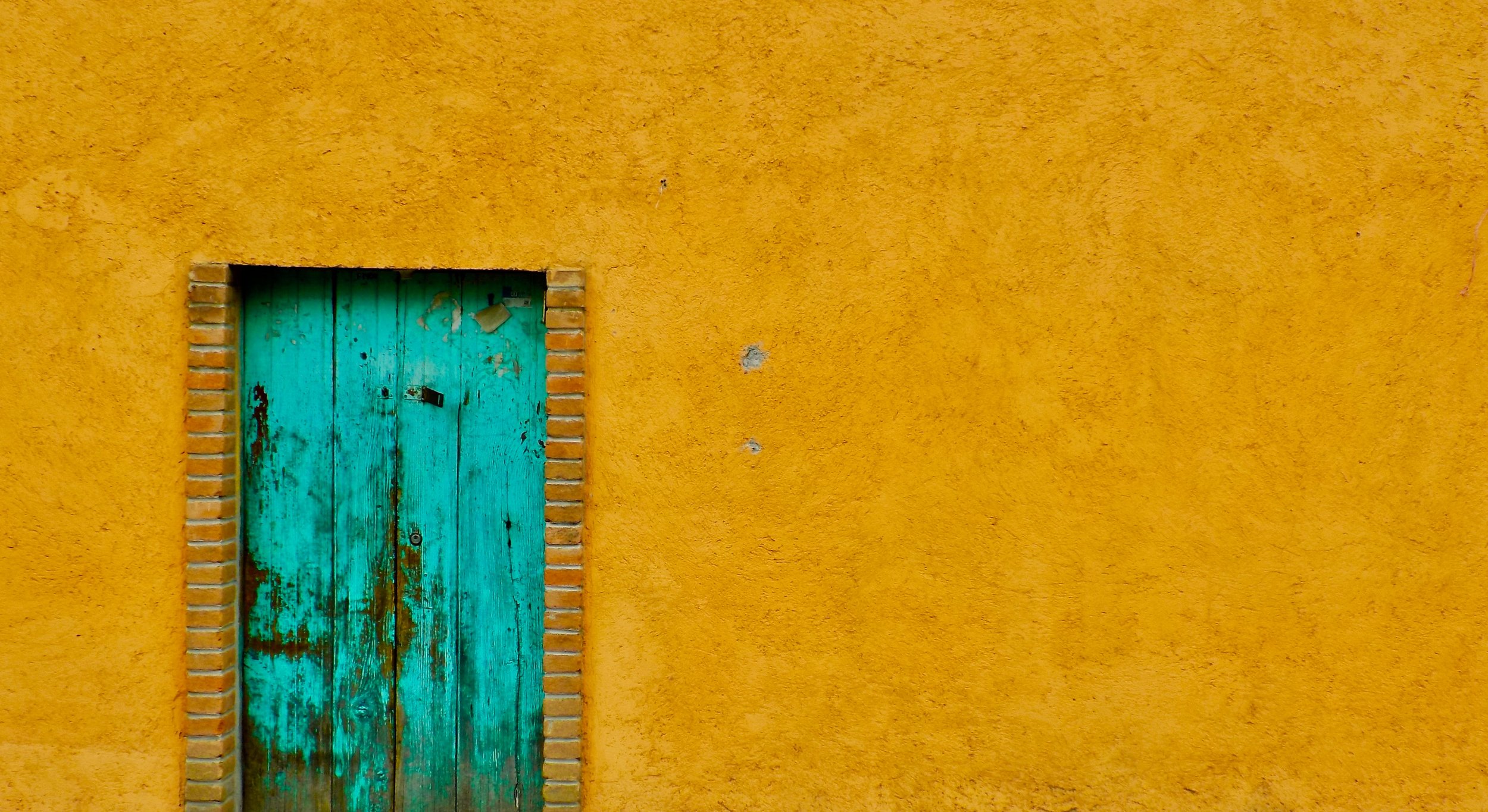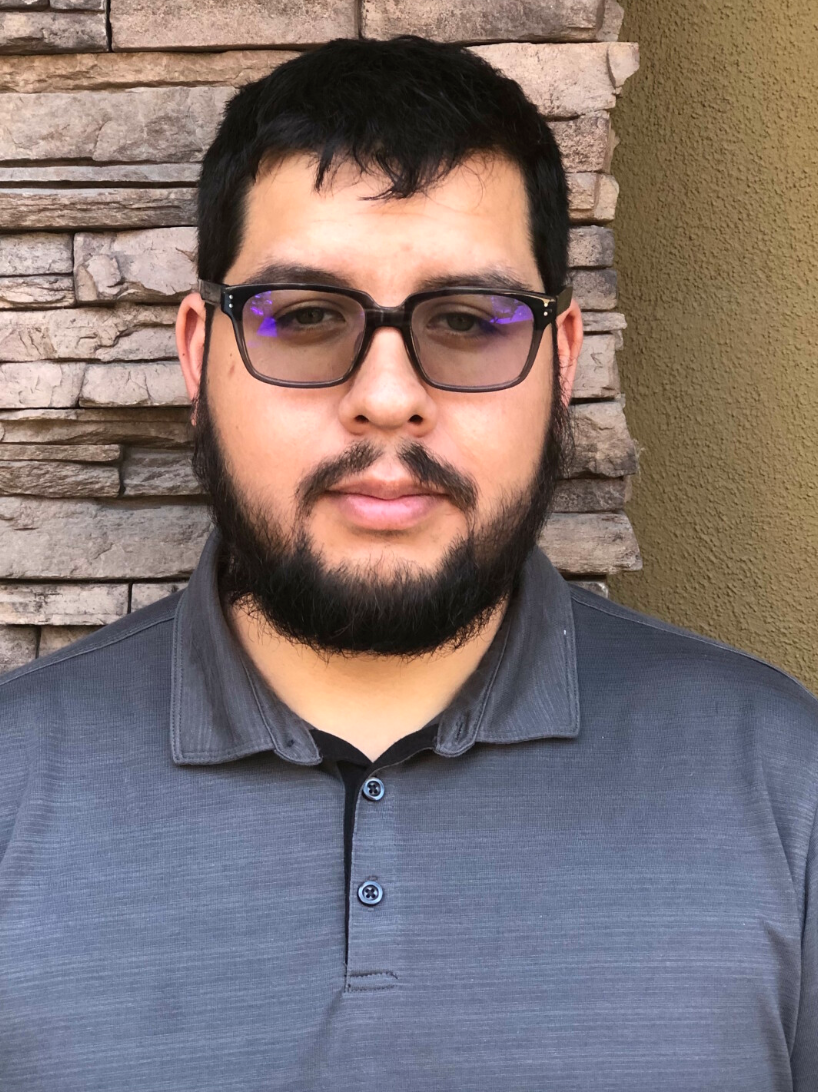An interview with Gustavo Barahona-Lopez
by Lisa Marie Basile
This interview is part of our new Creator Series, a series of Q&As designed to help you get to know people who are writing, making, and doing beautiful things.
Gustavo Barahona-López is a writer and educator from Richmond, California. He is the author of the poetry chapbook, "Loss and Other Rivers That Devour,” and in 2023 his debut full-length collection will be published by FlowerSong Press. I wanted to chat with him about his work and influences.
Lisa Marie Basile: Tell us a bit about what you’ve written — and what we can expect from you going ahead.
My chapbook, “Loss and Other Rivers that Devour” centers on my mourning my father’s death and how my identity and sense of self shifted along with the process of grieving. I wanted to write about the complexity of our relationship and my grief. Just as there is love so too is there hurt and actively pulling away from my father’s example.
I never felt that I fit my father’s narrow view of masculinity and part of my journey of grieving included forging my own sense of manhood.
In 2023 I will also publish my debut full-length collection with FlowerSong Press. It centers on themes of language, heritage, colonial erasures, trauma, and some speculative imaginings of the future.
Lisa Marie Basile: Can you tell us a little more about how identity or culture plays into your work?
I am the son of Mexican immigrants to the United States and that has a huge influence on my writing. This is in terms of language (in my case Spanish), cultural references, and experiences. Growing up as part of this community has also inspired me to write about the many abuses perpetrated against migrants to the United States.
For instance, I wrote a microchap centered on migrant children dying on the U.S.-Mexico border. Additionally, I write a lot about masculinity and how I have sought to undo a lot of the gendered socialization that my parents impacted upon me.
Lisa Marie Basile: Looking back to your point about gendered socialization, you said, "I never felt that I fit my father’s narrow view of masculinity, and part of my journey of grieving included forging my own sense of manhood."
I'm wondering, as a poet, does writing about the complexity of family, grief, and gender (re)open these wounds, or does it help you confront, synthesize, or articulate the nuances of it all? I know some poets find writing about traumatic issues cathartic while others find it tricky — a sort of Pandora's box, if you will.
It’s a mixture of both for me. Writing poetry has been key for me to process my feelings around my father’s death and my relationship to his teachings on gender. Since part of my socialization was to repress my feelings to the point that I have trouble recognizing them, expressing myself in my poetry led me to realizations about my own emotions.
While in some ways it is cathartic to write about past trauma there have been multiple times where I have cried after writing a line or a poem because I touched a particularly tender part of my past.
“Since part of my socialization was to repress my feelings to the point that I have trouble recognizing them, expressing myself in my poetry led me to realizations about my own emotions. ”
Lisa Marie Basile: Are there other authors who you enjoy and who also handle masculinity in a way that resonates with you?
The author that comes to mind when thinking about complicating masculinity is the work of Tomas Moniz and his book “Big Familia.”
Lisa Marie Basile: And what does your writing process look like? I’m always curious to hear how other writers tend to their craft.
I write best when I have an extended period of time to myself. Preferably this would be outside of my home like a local coffee shop. Since my wife and I’d baby, Issa, was born a year ago though time to myself has been scarce so I usually write late night after the kids have gone to bed these days.
Lisa Marie Basile: Can you share some of your general inspirations and influences with us?
My literary influences include Martin Esparza, Tomas Rivera, Sandra Cisneros, Eduardo Corral, Vanessa Angelica Villarreal, Jose Olivares, Marcelo Castillo Hernandez, Alan Chazaro, Muriel Leung, Lupe Mendez, Pablo Neruda, Federico Garcia Lorca, and Gloria Anzaldua.
Lisa Marie Basile: And who are some contemporary creators, writers, or peers that you look up to on the regular?
Muriel Leung, Alan Chazaro, and Gustavo Hernandez.
Gustavo Barahona-López is a writer and educator from Richmond, California. In his writing, Barahona-López draws from his experience growing up as the son of Mexican immigrants. His poetry chapbook, "Loss and Other Rivers That Devour," was published by Nomadic Press in February 2022. Barahona-López was a finalist for the 2021 Quarterly West poetry prize and was awarded a Sundress Academy for the Arts (SAFTA) residency fellowship. A member of the Writer's Grotto and a VONA alum, Barahona-López's work can be found or is forthcoming in Quarterly West, Iron Horse Literary Review, Puerto del Sol, The Acentos Review, Apogee Journal, Hayden’s Ferry Review, among other publications.
Lisa Marie Basile is the founding editor of Luna Luna Magazine. She’s also the author of a few books of poetry and nonfiction, including Light Magic for Dark Times, The Magical Writing Grimoire, Nympholepsy, Andalucía, and more. She’s a health journalist and chronic illness advocate by day. By night, she’s working on an autofictional novella for Clash Books.
Her work has been nominated for several Pushcart Prizes and has appeared in Best Small Fictions, Best American Poetry, and Best American Experimental Writing. Her work can be found in The New York Times, Atlas Review, Spork, Entropy, Narratively, and more. She has an MFA from The New School.
































